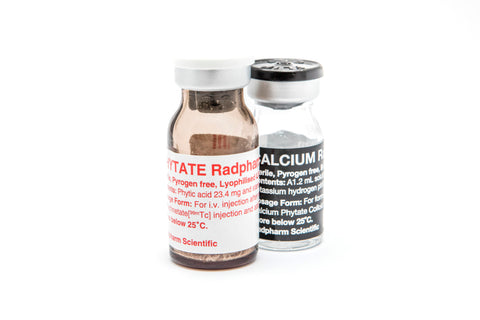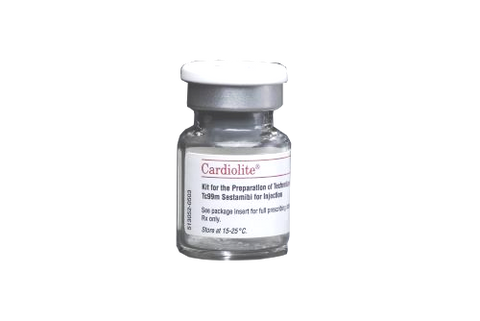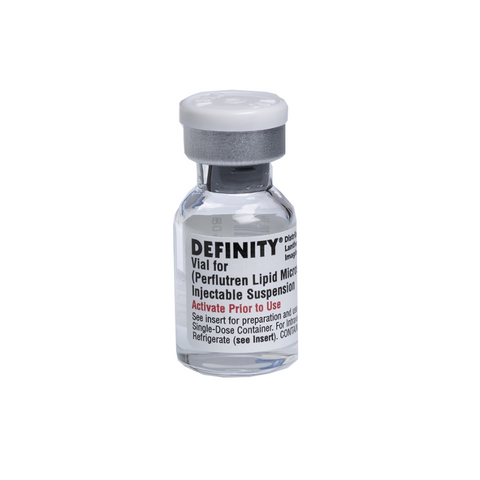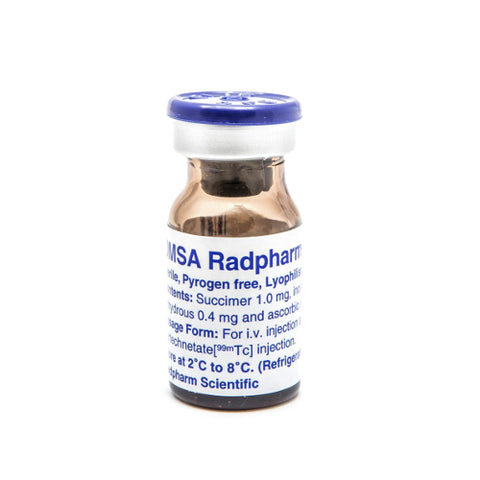PYP 1986/1
This Kit consists of sterile, pyrogen free lyophilised ingredients which need reconstitution with sodium chloride injection. Reconstituted PYP Radpharm is a diagnostic pharmaceutical administered by intravenous injection and is suitable for blood pool imaging.
PYP Radpharm is supplied as a carton of 5 sterile, pyrogen free, vacuum sealed multidose 8 mL vials. Each vial contains 30 mg sodium pyrophosphate and 9 mg stannous chloride anhydrous (5.6 mg stannous ion) as a lyophilised powder. The product contains no preservatives.
Technetium-99m with a physical half life of 6 hours decays by isomeric transition to technetium-99. Photons associated with this transition that are useful for detection and imaging studies are in Table 1.
Table 1.
Principal Radiation Emission Data Principal Radiation Mean Percent per Disintegration Mean Energy (keV) Gamma-2 89.1 140.5 Reference: D A Weber et al. "MIRD: Radionuclide Data and Decay Schemes", The Society of Nuclear Medicine Inc. New York, 1989. Table 2. Physical Decay Chart for Technetium-99m Hours Fraction Remaining Hours Fraction Remaining 0 1.000 7 0.446 1 0.891 8 0.397 2 0.794 9 0.354 3 0.707 10 0.315 4 0.630 11 0.281 5 0.561 12 0.250 6 0.500
Cardiolite® has been rarely associated with acute severe allergic and anaphylactic events of angioedema and generalized urticaria. In some patients the allergic symptoms developed on the second injection during Cardiolite®imaging. The most frequently reported adverse events include headache, chest pain/angina, ST segment changes on ECG, nausea, and abnormal taste and smell.
Infrequently, death has occurred 4 to 24 hours after Tc99m Sestamibi use and is usually associated with exercise stress testing (See Section 5.2). Pharmacologic induction of cardiovascular stress may be associated with serious adverse events such as myocardial infarction, arrhythmia, hypotension, bronchoconstriction and cerebrovascular events.
In studying patients in whom cardiac disease is known or suspected, care should be taken to assure continuous monitoring and treatment in accordance with safe, accepted clinical procedure.
Caution should be exercised and emergency equipment should be available when administering Cardiolite®.
Before administering Cardiolite® patients should be asked about the possibility of allergic reactions to either Cardiolite® or Miraluma®. Miraluma® is an identical compound used in breast imaging.
The contents of the vial are intended only for use in the preparation of Technetium Tc99m Sestamibi and are not to be administered directly to the patient without first undergoing the preparative procedure.
Please see full prescribing information.
Cardiolite Prescribing Information
DESCRIPTION Kit for the Preparation of Technetium[99mTc] Calcium Phytate ColloidInjection for Liver/Spleen Imaging. The agent comprises sterile, pyrogen free lyophilised ingredients whichneed reconstitution with sodium... View full product details
Cardiolite® is a technetium-labeled single photon emission computed tomography (SPECT) myocardial perfusion imaging (MPI) agent used for identifying and managing patients with known or suspected... View full product details
DESCRIPTION Cardiolite® is a technetium-labeled single photon emission computed tomography (SPECT) myocardial perfusion imaging (MPI) agent used for identifying and managing patients with known or... View full product details
Radpharm DMSA consists of sterile, pyrogen free lyophilised ingredients which need reconstitution with sodium pertechnetate[99mTc] injection to produce a technetium[99mTc] succimer complex suitable for renal imaging.The... View full product details
Sign up to get the latest on sales, new releases and more …
© 2025 GMS Australia Pty Ltd.
PRODUCTS NOT AVAILABLE FOR PURCHASE BY THE GENERAL PUBLIC .ALWAYS READ THE LABEL AND FOLLOW THE DIRECTIONS FOR USE
Powered by Shopify




